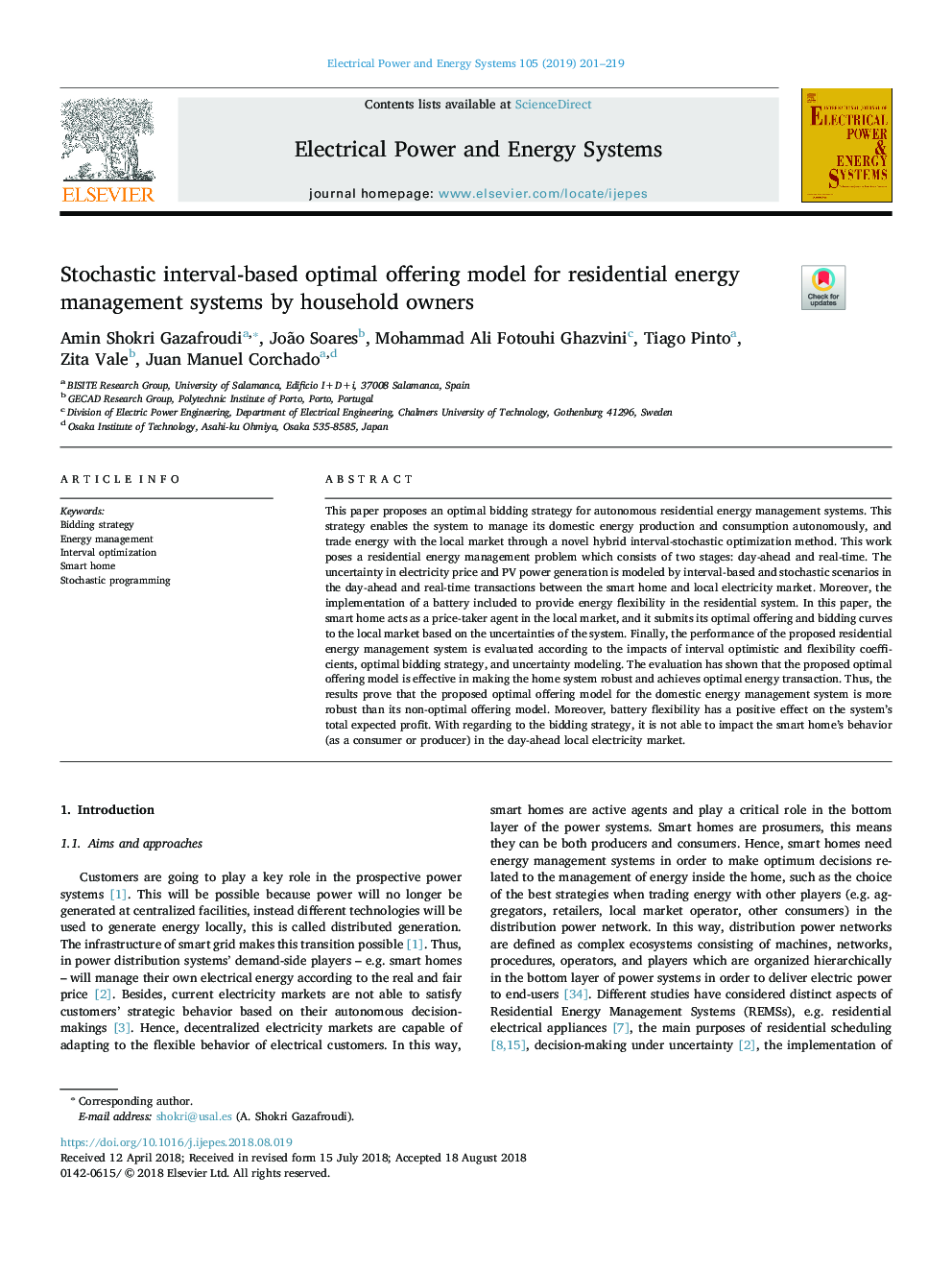| کد مقاله | کد نشریه | سال انتشار | مقاله انگلیسی | نسخه تمام متن |
|---|---|---|---|---|
| 9952107 | 1438695 | 2019 | 19 صفحه PDF | دانلود رایگان |
عنوان انگلیسی مقاله ISI
Stochastic interval-based optimal offering model for residential energy management systems by household owners
ترجمه فارسی عنوان
مدل ارائه مطلوب برای سیستم های مدیریت انرژی مسکونی توسط صاحبان خانه، مبتنی بر فاصله زمانی است
دانلود مقاله + سفارش ترجمه
دانلود مقاله ISI انگلیسی
رایگان برای ایرانیان
کلمات کلیدی
استراتژی مشارکت، مدیریت انرژی، بهینه سازی فاصله، خانه هوشمند، برنامه ریزی تصادفی،
موضوعات مرتبط
مهندسی و علوم پایه
مهندسی کامپیوتر
هوش مصنوعی
چکیده انگلیسی
This paper proposes an optimal bidding strategy for autonomous residential energy management systems. This strategy enables the system to manage its domestic energy production and consumption autonomously, and trade energy with the local market through a novel hybrid interval-stochastic optimization method. This work poses a residential energy management problem which consists of two stages: day-ahead and real-time. The uncertainty in electricity price and PV power generation is modeled by interval-based and stochastic scenarios in the day-ahead and real-time transactions between the smart home and local electricity market. Moreover, the implementation of a battery included to provide energy flexibility in the residential system. In this paper, the smart home acts as a price-taker agent in the local market, and it submits its optimal offering and bidding curves to the local market based on the uncertainties of the system. Finally, the performance of the proposed residential energy management system is evaluated according to the impacts of interval optimistic and flexibility coefficients, optimal bidding strategy, and uncertainty modeling. The evaluation has shown that the proposed optimal offering model is effective in making the home system robust and achieves optimal energy transaction. Thus, the results prove that the proposed optimal offering model for the domestic energy management system is more robust than its non-optimal offering model. Moreover, battery flexibility has a positive effect on the system's total expected profit. With regarding to the bidding strategy, it is not able to impact the smart home's behavior (as a consumer or producer) in the day-ahead local electricity market.
ناشر
Database: Elsevier - ScienceDirect (ساینس دایرکت)
Journal: International Journal of Electrical Power & Energy Systems - Volume 105, February 2019, Pages 201-219
Journal: International Journal of Electrical Power & Energy Systems - Volume 105, February 2019, Pages 201-219
نویسندگان
Amin Shokri Gazafroudi, João Soares, Mohammad Ali Fotouhi Ghazvini, Tiago Pinto, Zita Vale, Juan Manuel Corchado,
